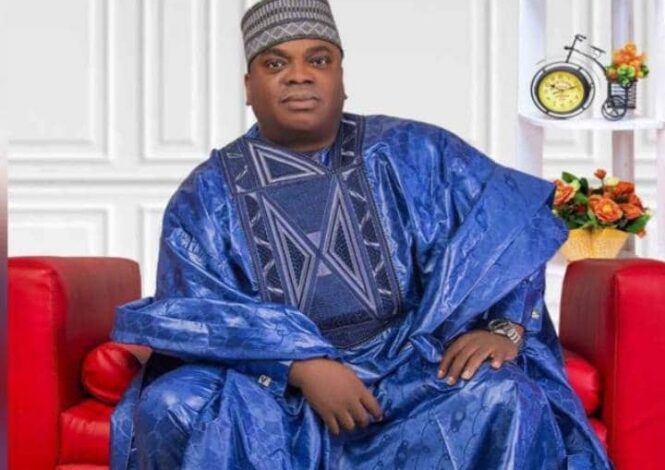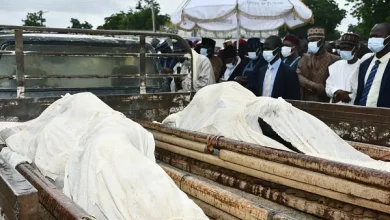
By Guest Writer
Opinion: Africa jubilated after full independence declarations from their European colonizers. It was a hard-fought victory, and the promise of self-rule was finally realized. But independence also brought many challenges that have hindered the progress of many African countries and problems that Africa still lingers with.
Today’s challenges in Africa are related to the mismanagement of funds, which is crippling the economy. Politicians are accused of corruption, especially in deals with foreign countries interested in resources such as minerals in Africa, for example, in my home country, Nigeria, where kleptocracy is the order of the day.
Africa has sold a lot of raw materials and resources to Europe and other continents but has nothing to show for it. Nigeria, Angola, Equatorial Guinea, and Sudan are some of the good examples whose oil reserves have been monopolized by military dictatorships and kleptocratic regimes at the expense of states.
Other continents have chosen to call Africa a ‘country’ because all African countries display the same signs of poverty. The term ‘third world countries’ refers to these countries.
Transparency International recently released its latest annual Corruption Perception Index report. Interestingly, 44 of these most corrupt countries are in Africa. The report by Transparency International showed that 90% of the 180 countries surveyed had South Sudan, Somalia, Libya, Equatorial Guinea, Nigeria, the DRC, and Burundi topping the list.
Poverty in Africa will not end until leaders in African countries work together to fight against the underdevelopment of Africa as a continent. Africa only acquired political independence, but the residents did not acquire economic independence.
Leaders in Africa are fighting for leadership positions in the government to control the existing resources and exploit the economy. Government positions are seen as a solution to escaping poverty by many people in Africa. The government remains the only avenue for politicians to exploit the economy in Africa.
Financial aid provided by Western countries is abused by African leaders through misappropriation of funds and money laundering, and leaders use funds for their own benefit. Political corruption in Africa is dominant, and most leaders manipulate voters to vote for them, and afterward, they continue exploiting the economy like others, for example. Nigeria has had no difference between the government of Gen. San Abacha and the current government of Tinubu in terms of accountability and establishing an equal economic environment. Africa certainly needs leaders who will change the economic situation in their countries.
Most African countries cannot afford to sustain the economy and cannot afford to provide public services with the existing funds, therefore surviving on loans from Western countries. As Africa’s debt continues to rise, the continent is being confronted with a global financial architecture that is misaligned with its needs.
This is happening at a time when the amount it owes to creditors outside of its borders has also grown. Having a growing share of debt outside of its borders has increased the risk of the burden of that debt becoming unsustainable as global financial pressures have weakened local currencies and increased the cost of servicing that debt in real terms.
My country, Nigeria, takes the 6th position on the list of African countries with the highest debts to the IMF. IMF data shows that countries like Egypt, Angola, and South Africa are at the top of the list of countries with the highest debt in Africa.
Africa must allow leaders who have a plan to change the economic situation in Africa to take leadership positions. Africa is struggling with people who are in leadership positions but do not have ideas to change the economic situation of Africa, while those who have ideas are not in leadership positions.
Regardless of decisions being made to change the economy, it is currently deteriorating, and there is no plan to pick it up.
Ill governance and a lack of succession planning for leadership in Africa are inevitable. Change of leadership has always been a problem for Africa since independence, with various states, including Nigeria, becoming the Harvard of military coups.
Even after a shift to multiparty democracy, leadership change remains a serious problem where the incumbents use the security setup—the army, police, prisons, and intelligence—to terrorize the opposition in order to manipulate their quest for more and more power, as the case has been in Gabon, Equatorial Guinea, and Uganda, among other examples.
The crisis of leadership in Africa is caused by various political leaders who are not in leadership positions to serve the interests of people but serve their narrow, selfish interests.
Africa lacks ethical leaders, and this affects the planning of the next set of leaders because they are not ethical. Leaders who do not have leadership ethics portray an image that leaders are not supposed to be ethical.
That image will also apply to the generation that will take over. The incumbent leadership in Africa does not plan for their exit or think that there are leaders that can lead after them. If ever leaders allow themselves to leave leadership positions, they put people that will continue from where they left.
Leaders in independent Africa are looting state resources, and they are fully aware that they are doing the wrong things. They nurture leaders that will come after them to protect them and also loot the leftovers. That is contributing to the decline of the African economy; the African economy is one step forward and ten steps backward. Current leaders and the succession plan contribute to the decline of the African economy.
Nepotism is popular in Africa, and the mentality of employing friends and family members in government positions in Africa is looming. People of the same ethnic group also tend to employ each other, for example, in Nigeria, where most of the public servants originate from the ruling dynasties; in Uganda, where most public servants come from western Uganda; in Gabon, etc. Nepotism in Africa is common, and it has been normalized in most countries. African leaders do not have a vision for Africa; they are only planning on how to use the existing resources, with no plan on how to mobilize resources for African people.
In conclusion, the African continent is still facing serious challenges of development, regardless of leadership changes. Dependency in Africa introduced corruption, fraud, underdeveloped infrastructure, poor leadership and dictatorship, and unsustainable development.
Under development in Africa is mostly caused by the type of leaders that are elected to take leadership positions in Africa. Africa has many challenges, but the center of all challenges after independence is corruption and the shrinking levels of democracy that need to be worked upon immediately.
Leaders in Africa lack ethics, and this affects the control of government resources. People who are entrusted with a responsibility to take control of public funds need to be of high ethical value. Good governance in Africa can only take place if leaders are ethical and innovative.
Leaders in Africa ascend to leadership positions because they want to have the power to control resources. The control of government funds by the caliber of leaders Africa has today has led to the collapse of many government institutions.
Africa lacks bold leaders who will decide to change the African economy, even if other continents are not in support of it. Good ethics and good governance can happen in Africa if good leaders can group themselves and say enough is enough.
Africa needs a generation of leaders that will change the status quo. Looking at the situation in Africa today, it seems like the generation that will change Africa is still yet to be found.
The author is Godswill Nwankwo, a mechanical engineer and a former Nigerian Senate candidate for the 2023 election, representing Abia South Senatorial District and Nigeria’s presidential hopeful in the next general elections.
Disclaimer: As UG Reports Media Ltd., we welcome any opinion from anyone if it’s constructive for the development of Africa. All the expressions and opinions in this write-up are not those of UG Reports Media Ltd. but of the author of the article.
Would you like to share your opinion with us? Please send it to this email: theugreports@gmail.com.






